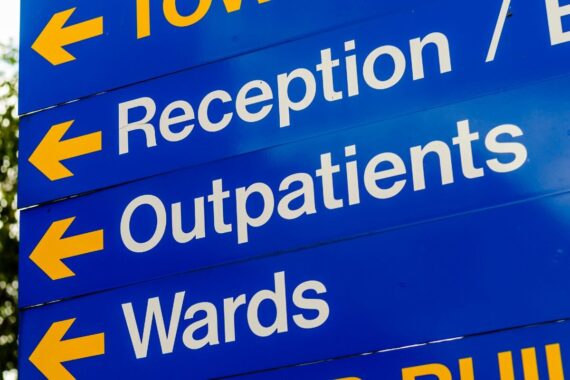GPs asked to submit ‘quality alerts’ to ICB when experiencing workload dump

GPs in London have been encouraged to submit ‘quality alerts’ to ICBs when they experience workload dump from hospital trusts.
Camden LMC said it is working ‘very hard’ with local trusts to ensure that the primary and secondary care interface ‘works as it should’ and that it ‘would encourage GPs who experience workload shift to return this work to the hospital and submit a quality alert.’
In a message to practices, the LMC’S chair Dr Tina Agrawal and vice-chair Dr Natalie Rout said: ‘These might include a consultant asking you to do a blood test (instead of giving the patient a form directly), a request to refer a patient back in two years for a repeat endoscopy (these should be kept on the books at secondary care and recalled), or an inappropriate request for the GP to refer elsewhere.
‘Referrals from one consultant to another should be done directly, assuming that the reason is either related to the original referral, or urgent.’
Dr Agrawal told Pulse that the quality alerts are sometimes the last resort for practices, as GPs usually prefer to raise issues in person with the trust.
She said: ‘Quality and safety alerts are a formal mechanism for GPs to raise interface issues with hospital trusts, particularly with regard to inappropriate workload transfer or unjustified passing back of referrals.
‘In reality, the way hospitals respond to these is normally in line with how actively they engage with general practice as a whole.
‘For example, Camden LMC has a good relationship with University College Hospital and we find it’s often easier and more effective to raise issues in person with our GP liaison contacts.
‘The trust has a number of good practices we would like to see taken up elsewhere in London, such as easy access to contact details for specialists, consistent responses to GPs from specialists and a collaborative approach to resolving issues in the first instance, which can be used before raising a formal QAS alert.
‘This is sadly not reflected across all other providers and the QAS alerts are needed in order to make contact or draw attention to a serious issue.’
In Kent, the LMC has recently agreed with hospital trusts a process whereby practices are able to raise issues arising from the interface with secondary care, in which practices are first asked to send anonymised details (for example, anonymised outpatient clinic letters) to the LMC.
The BMA has also encouraged practices to push back on inappropriate workload and created letter templates to help GP practices push it back from ICBs, prescribers and hospitals.
Meanwhile, GPs told Pulse that patients often come to them for translation of complicated hospital letters, which adds to their workload, after a report found that patients who do not speak English are at risk of delayed diagnosis because hospitals do not provide appointment letters in other languages.
Last month, GPs raised doubts about a new alert systems being used in some areas to report pressures in general practice, which in their current form seem to be of ‘very little value’.
Pulse October survey
Take our July 2025 survey to potentially win £1.000 worth of tokens

Related Articles
READERS' COMMENTS [5]
Please note, only GPs are permitted to add comments to articles










A waste of time, it’s been tried before numerous times.
1. It takes more time to report the miscreant than to simply do the task requested.
2. Whilst it may vex some partners, locums/salaried drs/PNs & paramedics do not have the same knowledge of the contract and/or vested interest in fixing the issue and are thus less likely to make the effort to report the problem.
3. There are no sanctions that can be brought against secondary care doctors for workload dumping so the result of such reporting is likely to be a shrug of the shoulders or some rubbish about Med3s being unavailable in the outpatient department.
Until secondary care is penalised financially for workload dumping and a process found to return the work to the secondary care doctor responsible without unduly inconveniencing the patient nothing will change.
Spot on secondary care will ignore as no penalty.Done before nothing ever happen just continues.Time to leave the sinking ship if you can.
@Tim Atkinson point 2, sadly hospital clinical staff do not understand the Standard Hospital Contract and C2C referral guidelines let alone NG 12 guidance on 2ww referrals within 2° care and genuinely think that GPs are obliged to do their work for them.
I am currently engaged in a complaint regarding a patient for whom I was directed by Trust clinicians, with no urgency, to make a 2ww referral on 2 occasions regarding the same problem, resulting in a 42 day delay in an appropriate 2ww referral being made. The only person to whom I spoke who actually understood the system was a secretary!
In the absence of any penalty system hospital management have no incentive to stop this abuse. I would suggest a fine for every infraction, either on a sliding scale, say minimum £100 for GP to do prescription/Med 3, £500 for GP to chase results/arrange investigation, to several thousand for the above example, or a flat rate of say £1000 for everything, this money to be paid directly to the ICB Primary Care fund and to be managed by the ICB.
Equally sadly HMG/DHSC/NHSE refuse to accept the looming disaster in Primary Care so are unlikely to support this move. Too late now to submit a motion to Conference, I hope someone has.
Sadly all too correct.
Hospital doctors have no clue. Sadly some lazy hospital consultants fuel this workload dump.
However, they are all first to criticise primary care amongst each other saying GP did or didn’t do something etc.
test